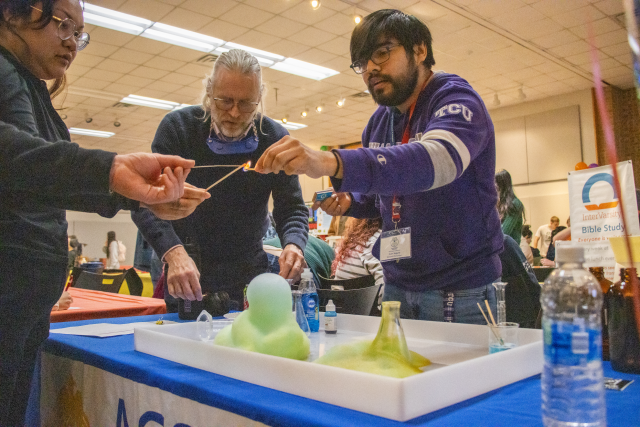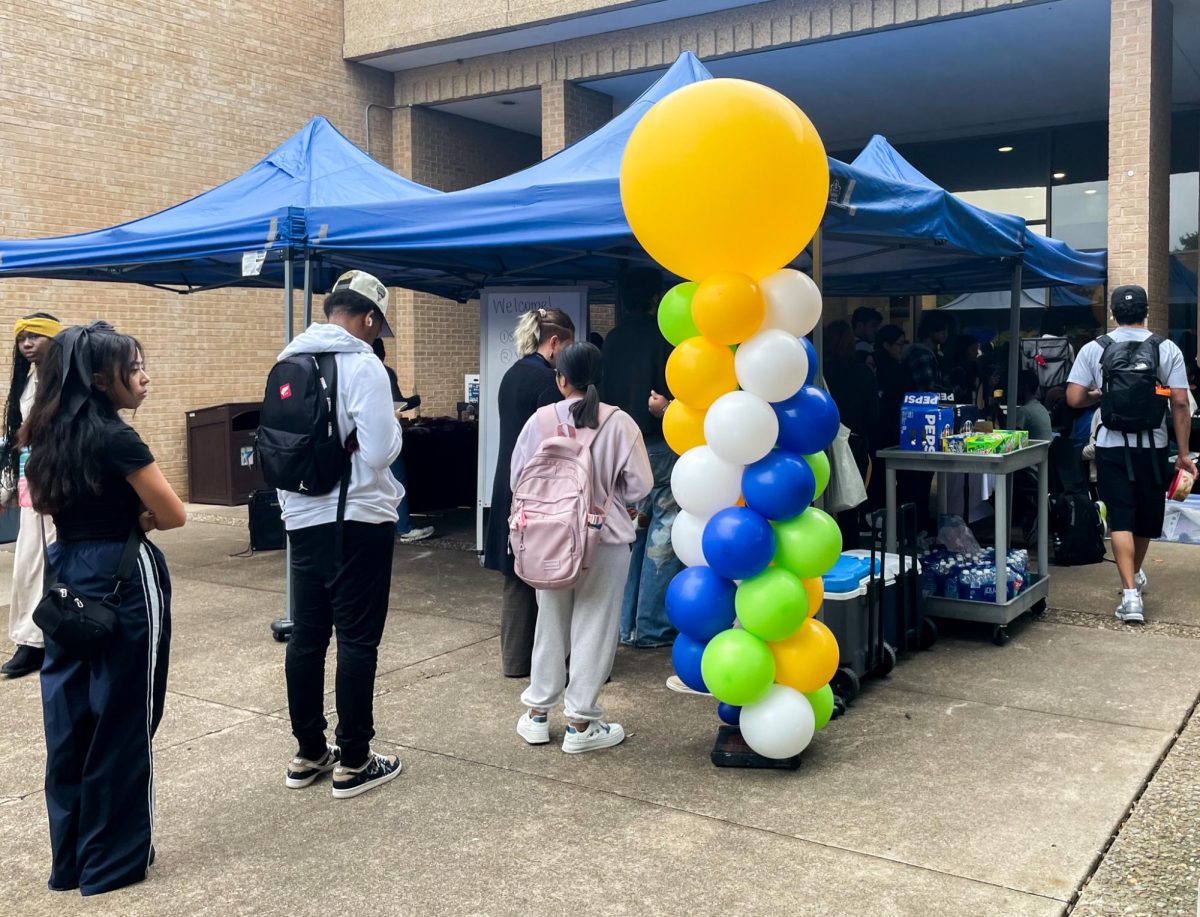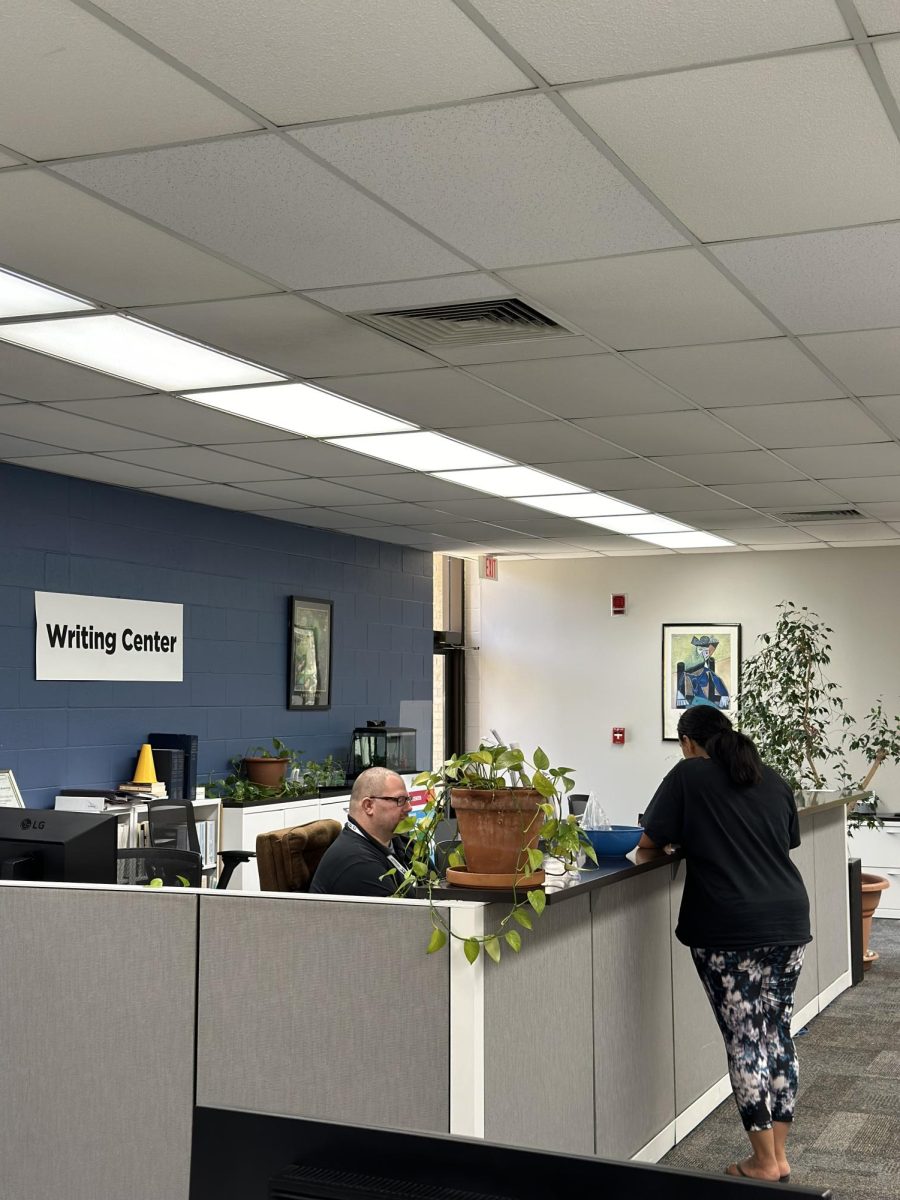XAVIER BOATNER
campus editor
xavier.boatner@my.tccd.edu
Following NE Club Rush, some TCC clubs have explained how they adapted and evolved over years following the pandemic.
Club Rush, organized by NE student activities, was held on Jan. 25 from 12:30 to 2 as a method of presenting students with an opportunity to take a dive into the diverse range of clubs and organizations found across campus.
Some clubs, namely Phi Theta Kappa and the neurodiversity club, have explained how they managed to evolve over the years, while others, namely the Fellowship Of Christian University Students, shared how they persevered over the years with little alteration.
Phi Theta Kappa adviser Peter Martinez believed that students’ desire to develop relationships with other students had only grown stronger over time, especially in recent years following COVID-19 lockdowns and social isolation.
“[Students want] to build their interpersonal skills,” Martinez said. “This has made it important for club advisors to be approachable, positive and genuine.”
Neurodiversity Club adviser Amber Meyers shared a similar desire to help students grow their social relationships.
“We weren’t around during COVID, but the pandemic was especially difficult for the neurodiverse student,” Meyers said. “Autistic folks have a limited social circle, and the social isolation of COVID was difficult to manage. ADHD members really missed the interactions. The return to campus after COVID helped everyone in the club get back into the rhythm of school.”
When discussing the ways, he and his peers processed this information, he explained how the club has gone out of its way to increase the number of options in which students can communicate with each other.
“We more actively use online resources like GroupMe and Canvas messaging to communicate with our members,” he said. “We also hold frequent meetings that provide updated information, promote collaboration, and maintain a welcoming environment. Our Canvas page also provides pertinent information for our members.”
Similarly to the Phi Theta Kappa’s approach, Meyers and the neurodiversity club found new ways of communicating with one other using various online resources.
“We have a Discord channel as well as the Canvas page,” she said. “Discord is used by more members. Additionally, committee members have text chains for communication. We are improving our YouTube channel, have our own dedicated website and are making content to share with people who have similar interests but may or may not be TCC students.”
Trying to encourage members to start taking advantage of the additional club resources worked to the club’s benefit, Martinez said.
“I think it has been easier to get students interested [in Phi Theta Kappa], however TCC’s enrollment dropped tremendously during the pandemic, so the number of members does not necessarily reflect the level of interest” he said.
Despite the club being relatively new, the neurodiversity club has managed to find success in a post-pandemic world and grown a lot, Meyers said.
“The Spring of 2023 was a starter semester as we got things off the ground,” she said. “The Fall 2023 semester drew in so many more members that growth was inevitable. We expanded our officer corps to support the requests of the members’ interests.”
Martinez felt one of the prevailing elements that helped the club stand strong through the challenges in its path over the last couple of years was the strong, prominent leadership under the club’s advisers.
“Each of us [advisers] dedicates several hours per week to Phi Theta Kappa, and we have great relationships with each other and with the students,” he said. “All of our advisers tend to be involved in a variety of projects, and before the pandemic, I think advisers were a little more specialized.”
Meyers said one of the main things that has allowed the neurodiversity club to stand strong and stand out was the ability to make meaningful connections.
“The club brings [neurodiverse] people together over shared interests which is the basis of friendship formation,” she said.
Sean Foushee, adviser of the Fellowship Of Christian University Students club, reflected on the state of the club in a post-COVID world.
“For [the club], not a lot has changed post-COVID compared to what was done pre-COVID,” Foushee said. “The club still meets primarily in-person for worship, fellowship and bible study.
Similarly to Phi Theta Kappa, Foushee and his peers, despite not changing much about the club post-COVID, cited student communication as a priority and added additional resources to the club’s repertoire.
“The only major change has been the inclusion of Canvas as a communication hub for current and prospective members…[which] has been a very helpful tool to communicate with students and for students to collaborate with each other,” he said.





































